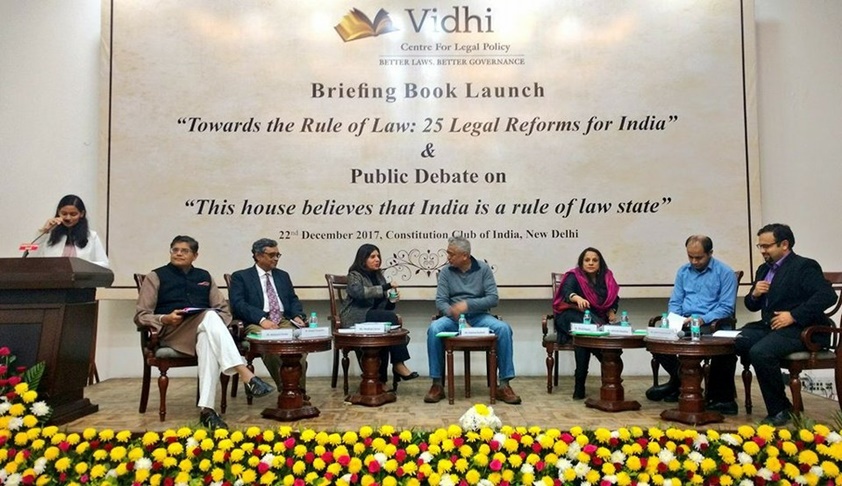Launch Of Vidhi’s Briefing Book On Rule Of Law: ‘Does Democracy Mean All Is Well On Rule Of Law Front’?
Mehal Jain
25 Dec 2017 7:25 PM IST

Next Story
25 Dec 2017 7:25 PM IST
On Friday, the Vidhi Centre for Legal Policy hosted an event at the Constitutional Club of India in New Delhi to celebrate the launch of its briefing book Towards the Rule of Law: 25 Legal Reforms for India. The book launch was followed by a public debate on the motion: “This house believes that present day India is a rule of law State”.The debate, moderated by Rajdeep Sardesai,...
